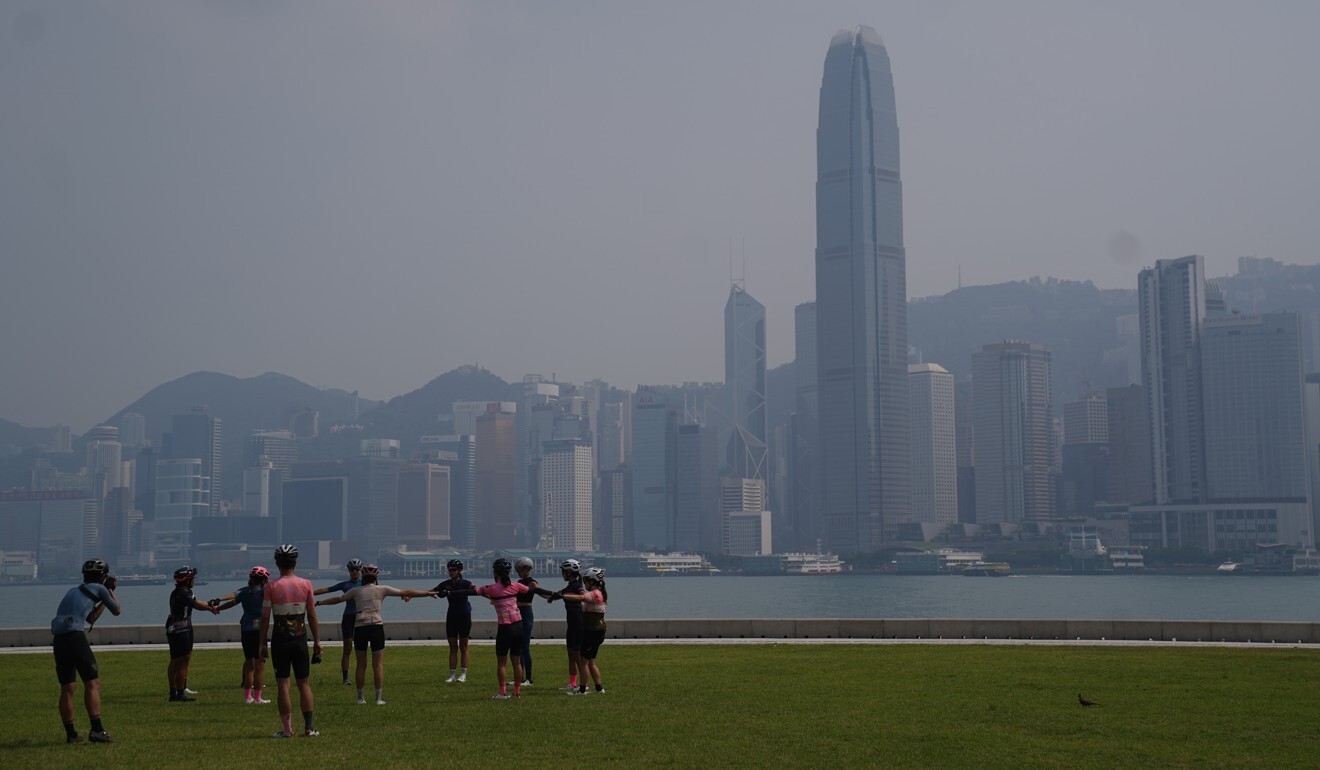
Mercury rising: September on track to be hottest on record in Hong Kong as city swelters through soaring temperatures
- Hong Kong has already seen 16 very hot days and nine hot nights this month
- Former assistant director of city’s Observatory calls figures ‘frightening’ and attributes it to climate change and effects of Typhoon Chanthu
September in Hong Kong this year is shaping up to be one of the hottest on record, with the city experiencing 16 very hot days before the month has even ended, which is already six more than the previous high 12 years ago.
“Chanthu moved slowly from Taiwan to Shanghai, and it was very strong,” Leung said. “That’s why its outer subsiding air affected Hong Kong as well.
“Even though it did not bring us much rain, it did bring very hot weather, this is a common phenomenon ahead of tropical storms.”
Leung said the highest temperature ever recorded by the Observatory was 36.6 degrees Celsius (96.8 degrees Fahrenheit), shortly before Super Typhoon Hato hit Hong Kong in 2017.

Forecasters in the city define very hot days as those when temperatures rise to 33 degrees and above.
Leung also said September had so far seen nine hot nights – when temperatures do not fall below 28 degrees – which would also be the highest tally since records began in 1884.
The previous highest number of very hot days recorded in September was 10 in 2009. Even though last year saw a record-breaking 47 very hot days throughout the year, there were only four in September.
The highest number of hot nights previously was seven in 2019, 2009 and 2008. Hot nights are particularly concerning to scientists who study the urban heat island effect, which causes hot air to be trapped within the built environment throughout the day.
Hundreds dive in as Hong Kong water park opens amid scorching temperatures
Studies by local scientists have found hotter nights increase the risk of death among underprivileged women and the elderly, who are not necessarily able to afford air conditioning.
Green Earth founder and executive director Edwin Lau Che-feng said the government needed to scale up existing renewable energy projects, such as a pilot programme to install floating solar panels in the city’s reservoirs, and floating wind turbines off the city’s coasts, to effectively lower emissions from its most carbon intensive energy sector.
Power generation makes up more than two-thirds of the city’s greenhouse gas emissions, as it mostly relies on fossil fuels. Natural gas accounts for half of Hong Kong’s power generation, with coal and nuclear energy accounting for a quarter each.
Renewable energy sources, which do not emit greenhouse gases, only make up about 1 per cent.

00:31
Giant hailstones batter Hong Kong
The city would also need to revamp its transport sector by speeding up the adoption of electric vehicles, Lau added.
“Compared to the previous climate summit in Paris in 2015, the relationship between the United States and China has soured and they are now at odds,” Leung said, adding it was unlikely the pair would be able to come to a consensus at the upcoming climate summit in Glasgow in November.
“All the leading powers will try and force China to lower emissions, but the starting point is wrong, as China’s per capita emissions are still lower than those of Europe and the US,” Leung said.
“And if you try to take a hard stance against China, China will only adopt a harder stance. We should be trying to work together instead of being in opposition.”

